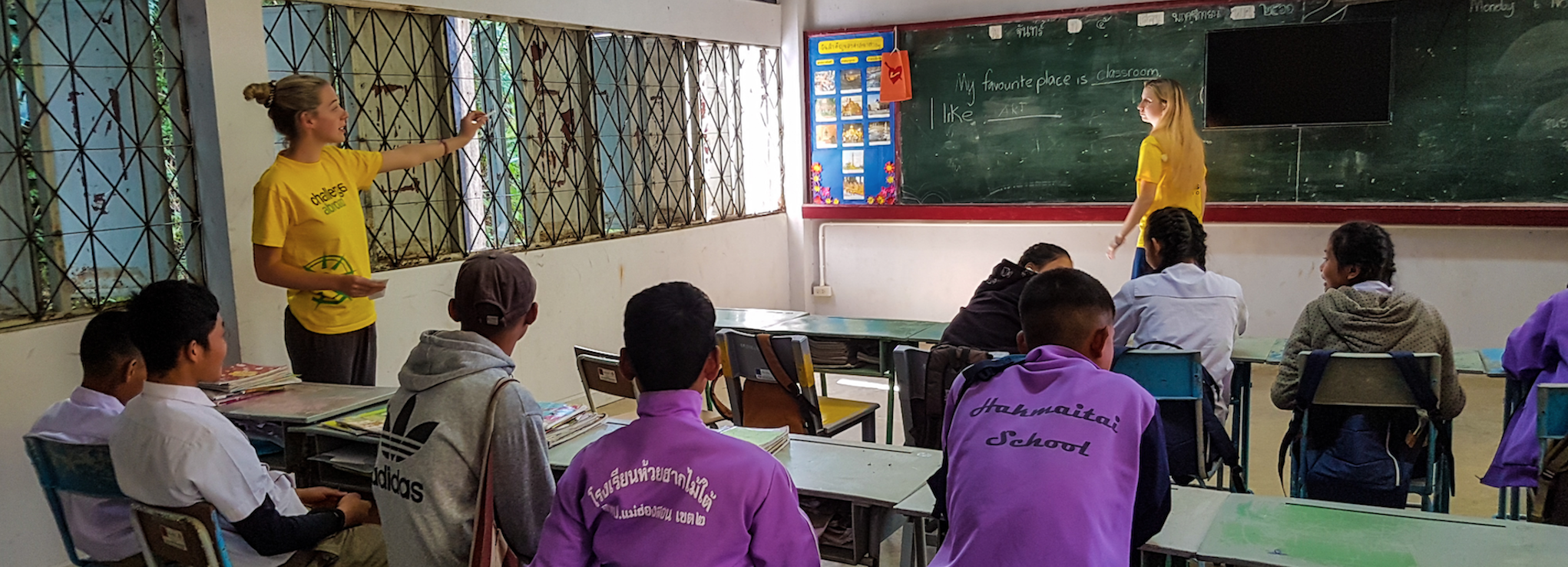Education Challenges In Thailand
By Juliette
There is an inequality gap widening in Thailand between rural and urban access to quality education. Those who live in more rural areas of Thailand have diminished access to quality education, whereas urban have better quality schools and teachers that receive more funding from the government.
Education is free in Thailand. But it is the discrepancy between the access to quality education depending on where you live that is the problem in Thailand.
According to the Bangkok Post, “the main problem is the ‘inequity’ of educational opportunities available for children in urban and rural areas”.
It can be hard to wrap your head around what this might look like. To put it simply, in rural areas the schools receive less government funding, the facilities are in constant need of repairs, there are limited school supplies and the teachers are often teach a lower standard because the best teachers are offered more appealing jobs at high performing schools in the cities.
Unfortunately, the result of this is that it widens the income gap of rural and urban areas in Thailand further. Whether we like it or not, a base level of quality education makes you more likely to get a job than if you had no education at all. And, there is a positive correlation between the level of education you reach and income.
In Thailand in 2016, the wealthiest 10% of citizens earned 53% of Thailand’s income, while 50% of the population received just 13% of national income. 7.2% of the population live below the poverty line with that number being four times higher in rural areas.
So, what can you do to help in this situation?
Join us on our Thailand Community Challenge!
This challenge focuses on the following four sustainable development goals, but with a high emphasis on goal number 4 ‘Quality Education.'

Quality Education –
“Ensure inclusive and equitable quality education and promote lifelong learning opportunities for all.”
On this challenge, your goal is to be inspired and engaged in education, so much so that it is visible to the local children. This way, the students that you are working with can be inspired by you! As a volunteer, you are there to be a role model. Show these kids the benefits of investing time and effort into your education! Having role models who can contextualise the importance of education for these local Thai people is extremely powerful in changing societal perceptions around education – particularly with females.
This is really important because, not only is the disparity between rural and urban schools evident in Thailand, but traditionally, it is difficult to keep kids in school in rural areas. In Thailand, 95% of primary school-aged children go to school, but this number sadly reduces when it comes to secondary school. Unfortunately, nearly 15 per cent of secondary-school aged children are not in school.
Often, parents need their children to work on their farm, or help out at home, or look after them. This is an entrenched system which accepts that school is unfortunately not a priority because they have to sustain themselves. If we are able to help prioritise school to ultimately provide these families with better lives, it could break the poverty cycle and change society for the better.
Be a part of a movement that, in 2018, delivered 298 hours of conversational English to 594 children across 9 schools in remote Thailand. It is unfortunately a fact that in the countries which we work, proficient English skills correlates to a much higher paying job. We are trying to help target those skills which these students can gain the most benefit out of – English being a primary one.
So, why not come and join our next Thailand Community Challenge to be a part of those 400+ hours that we are aiming for in 2020?





